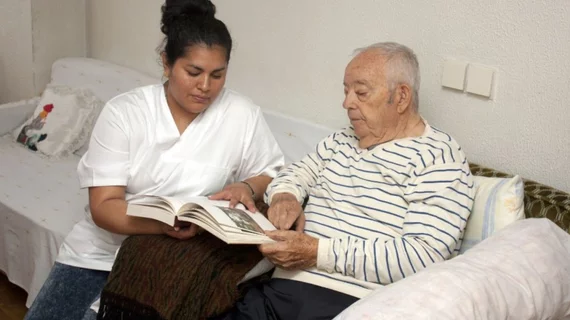Changes to patients’ memory similar after cardiac surgery, catheterization
Patients who receive heart surgery experience minimal changes to their memory up to two years after their operations compared to those who undergo less-invasive cardiac catheterization, according to a new study, offering reassurance that postoperative cognitive decline (POCD) may be temporary in many cases.
Researchers led by Elizabeth Whitlock, MD, with the University of California, San Francisco, studied 3,105 participants from the Health and Retirement Study (HRS) who reported undergoing either heart surgery or cardiac catheterization between 2000 and 2014. They chose catheter-based procedures—including diagnostic tests—as the control group because those interventions are also used to treat heart disease but are less invasive than open surgery, which has been linked to POCD. Some previous studies have compared mental decline in cardiac surgery patients to individuals without heart disease, which is less of a fair comparison, Whitlock noted, because “severe heart disease itself probably has a cognitive impact.”
HRS participants took memory tests and were interviewed about their health every two years, allowing Whitlock et al. to assess any memory decline from before to after patients’ respective procedures. Among individuals aged 65 and older, heart surgery patients showed an average decline of -0.021 memory units on the test compared to those who underwent only cardiac catheterization, after adjusting for covariates. This amount of relative decline is equivalent to about 4.6 additional months of cognitive aging.
For a hypothetical 75-year-old person, it would translate to a 0.26 percent increased risk of being unable to manage finances independently and a 0.19 percent increased risk of being unable to manage medications independently, the researchers calculated.
“We expected to find a bigger difference in the surgery group, since there are many anecdotes about serious cognitive decline after heart surgery,” Whitlock said in a press release. “Our results are different for several reasons, one being that our follow-up is up to 2 years after surgery, to account for the fact that people may improve over time.”
This explanation centers around the idea that POCD is a transient problem caused by perioperative factors, which could have been largely recovered from by the time participants completed their follow-up interviews and memory assessments.
Factors that could be associated with temporary post-surgical cognitive decline could include pain medication, small strokes suffered during surgery, disrupted sleep, hospital-acquired infections and delirium.
“The population-level impact of cardiac surgery, compared with cardiac catheterization, on intermediate-term cognition, if it exists, is likely to be subtle,” Whitlock and colleagues wrote in the study, which was published online Dec. 18 in The Annals of Thoracic Surgery. “People who need surgery to correct serious heart disease should not avoid the operation because they worry about long-term cognitive impact.”

